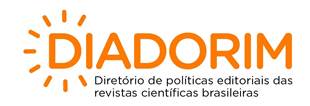Prevalence of compulsion in migraine patients and its association with analgesics abuse
Views: 726DOI:
https://doi.org/10.48208/HeadacheMed.2024.19Keywords:
Migraine, Medication-overuse, Obsessive compulsive disorder (OCD)Abstract
Introduction
Migraine, is one of the most prevalent types of headaches, affects around 15% of people world wide, more common among women, causes a great effect in the quality of life of the individual. With the purpose to ease phonophobia, photophobia, nausea followed by vomiting, unilateral, pulsatile and intense, headache crisis the patients have a drug overuse. The medication-overuse headache (MOH) is an emerging problem, due to the possibility of developing psychiatric disorders like obsessive compulsive disorder (OCD).
Objective
Determine a prevalence of OCD in migraine patients, evaluating different scopes of it, including the association or not with drug abuse.
Methods
A cross-sectional study with 117 patients of both sexes, older than 18 years old. Three questionnaires were used: Barratt Impulsiveness Scale (BIS-11); Obsessive Compulsive Inventory-Revised (OCI-R) and the Migraine Disability Assessment (MIDAS). The data collected was placed in an electronic worksheet and processed in Software SPSS Statistics 22.0. There was an assumption of a p value of 0,05 to all cases with the intention to reject the null hypothesis.
Results
Findings suggest that individuals with a medication-overuse profile have a higher tendency to develop compulsive symptoms and the seriousness of the migraine symptoms is extremely related to medication-overuse headache.
Conclusion
The study showed that patients with medication-overuse headache have a higher tendency to develop compulsive behavior.
Downloads
References
Souza NE, Calumby ML, Afonso EDO, Zannon T, Nogueira S, Beatriz A, et al. Cefaleia : migrânea e qualidade de vida. Rev de Saúde. 2015;23–6. https://doi.org/10.21727/rs.v6i2.55
Padovan M, Ferreira A. Enxaqueca é incluída pela OMS no rol de doenças mais incapacitantes [Internet]. Correio Braziliense. 2018 [cited 2020 Jul 8]. Available from: https://www.correiobraziliense.com.br/app/noticia/revista/2018/01/15/interna_revista_correio,653392/enxaqueca-e-incluida-pela-oms-no-rol-de-doencas-mais-incapacitantes.shtml
Carezzato NL, Hortense P. Migraine: etiology, risk, triggering, aggravating factors and clinical manifestations. Rev da Rede Enferm do Nord. 2014;15(2):334–42. doi: 10.15253/2175-6783.2014000200019
Olesen J. Headache Classification Committee of the International Headache Society (IHS). The International Classification of Headache Disorders, 3 ed. Cephalalgia. 2018;38(1):1–211. doi: 10.1177/0333102417738202.
Speciali JG, Dach F, Setlin R, Ferreira K. Ano mundial contra a dor de cabeça. International Association for the Study of Pain. 2011;3.
Moreira de Barros GA, Calonego MAM, Mendes RF, Castro RAM, Faria JFG, Trivellato SA, et al. The use of analgesics and risk of self‐medication in an urban population sample: cross‐sectional study. Brazilian J Anesthesiol. 2019;69(6):529–36. https://doi.org/10.1016/j.bjane.2019.10.006
Tavares H, Alarcão G. Manual Clínico Dos Transtornos Do Controle Dos Impulsos. 1. ed. Porto Alegre: Artmed; 2008. 19–36.
Conceição M. Transtorno obsessivo - compulsivo obsessivo-. Rev Bras de Psiquiatr. 2000;22(Supl II):16–9. https://doi.org/10.1590/S1516-44462000000600005
Bobes J, García-Portilla MP, Bascarán MT, Sáiz PA, Bobes-Bascarán MT, Bousoño M. Quality of life in obsessive-compulsive disorder. Rev Psiquiatr Clin. 2007;35(1):293–303. https://doi.org/10.1590/1413-81232017224.02062015
Torres AR, Lima MCP. Epidemiologia do transtorno obsessivo-compulsivo: uma revisão. Rev Bras Psiquiatr. 2005;27(3):237–42. https://doi.org/10.1590/S1516-44462005000300015
Malloy-Diniz LF, Mattos P, Leite WB, Abreu N, Coutinho G, De Paula JJ, et al. Tradução e adaptação cultural da Barratt Impulsiveness Scale (BIS-11) para aplicação em adultos brasileiros. J Bras Psiquiatr. 2010;59(2):99–105. doi:10.1590/S0047-20852010000200004
Huppert JD, Walther MR, Hajcak G, Yadin E, Foa EB, Simpson HB, et al. The OCI-R: Validation of the subscales in a clinical sample. J Anxiety Disord. 2007;21(3):394–406. doi: 10.1016/j.janxdis.2006.05.006
Foa EB, Huppert JD, Leiberg S, Langner R, Kichic R, Hajcak G, et al. The obsessive-compulsive inventory: Development and validation of a short version. Psychol Assess. 2002;14(4):485–96. doi:10.1037/1040-3590.14.4.485
Fragoso YD. MIDAS (migraine disability assessment): A valuable tool for work-site identification of migraine in workers in Brazil. Sao Paulo Med J. 2002;120(4):118–21. doi:10.1590/S1516-31802002000400006
Minen MT, Begasse De Dhaem O, Kroon Van Diest A, et al. Migraine and its psychiatric comorbidities. J Neurol Neurosurg Psychiatry. 2016;87(7):741-749. doi:10.1136/jnnp-2015-312233.
D'Amico, D, Sansone, E, Grazzi, L, et al. Multimorbidity in patients with chronic migraine and medication overuse headache. Acta Neurol Scand. 2018; 138: 515– 522. doi:10.1111/ane.13014.
Radat F, Swendsen J. Psychiatric comorbidity in migraine: a review. Cephalalgia. 2005;25(3):165-178. doi:10.1111/j.1468-2982.2004.00839.x
Cabral A, Tolentino A, Paula CBDE, Santos LM. Prevalência de impulsividade em migranosos sem e com abuso de analgésico. Arq Neuropsiquiatr. 2019;778–82. doi:10.1590/0004-282X20200071
Downloads
Published
How to Cite
Issue
Section
License
Copyright (c) 2024 Ana Carolina Monteiro Braz, Júlio César Cimino Pereira Filho, Maria Clara Lopes de Barros, Matheus Henrique Vieira Ribeiro, Matheus Silva Sousa, Vinícius Henrique dos Santos, Danilo Jorge Silva, Mauro Eduardo Jurno (Author)

This work is licensed under a Creative Commons Attribution 4.0 International License.












